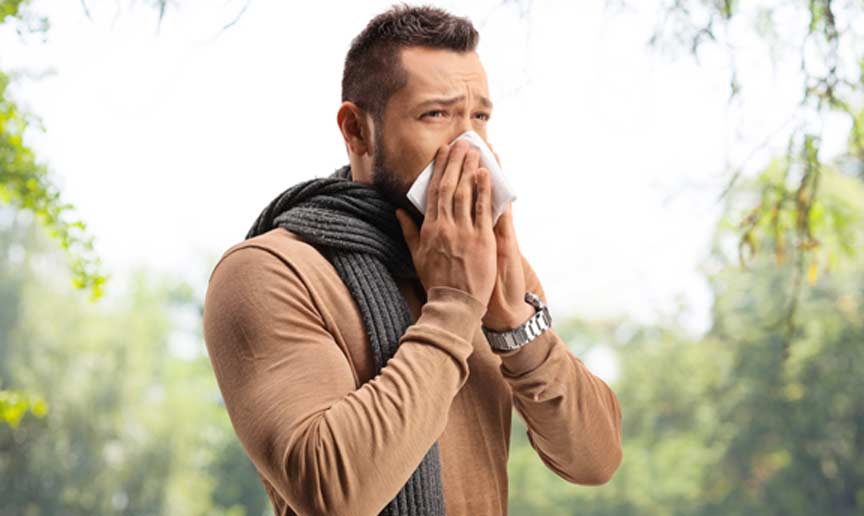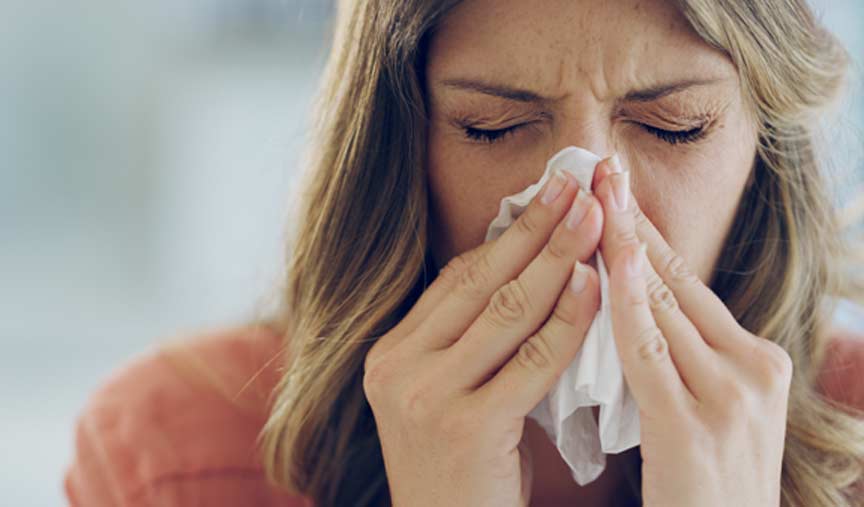
Especially problematic for many sufferers from late March through September, allergic rhinitis is the most common allergy condition.
Often referred to as hay fever, it sometimes feels like a cold. But unlike the common cold, it’s not virus-related. It’s usually aggravated by a combination of indoor and outdoor allergens that can make you feel downright miserable.
Fortunately, there are treatment and symptom management options to consider.
Causes, Signs, and Symptoms
With allergic rhinitis, your immune symptom perceives certain airborne substances as foreign invaders. Your immune system eventually forms antibodies against airborne substances that are normally perfectly harmless, such as pet dander, pollen, and dust mites.
And the next time you come in contact with any allergens of this nature, your body produces a chemical called histamine. This chemical then sets of a series of immune system responses, which could contribute to any of the following symptoms:
- Nasal congestion and a runny nose
- Eye irritation (allergic conjunctivitis)
- Sneezing and coughing
- Extra mucus that goes into the back of the throat (postnasal drip)
- An itchy roof of the mouth and nose
- Bluish coloration under the eyes (allergic shiners)
- Increased fatigue


How a Diagnosis is Made
Diagnosis of allergic rhinitis usually begins with a physical examination. You may also be asked about your symptoms and medical history. If it’s suspected you may have allergies, there are two tests that are often performed.
The first one is a skin prick test. This is a test in which common allergy triggers (allergens) are injected into your upper back or arm to see if an adverse reaction occurs. The other common allergy test is a blood test that looks for allergy-causing (immunoglobulin E) antibodies.
Treating Allergic Rhinitis
If your symptoms are mild or seasonal, you may be advised to make an effort to avoid your known allergic rhinitis triggers. For instance, if pollen is your primary trigger, you may be able to avoid severe reactions by checking daily pollen counts. Allergy medications can also provide relief. Antihistamines and decongestants are the most common ones.
However, some hay fever sufferers benefit from prescription nasal sprays, drops that contain cromolyn sodium to block the release of histamine, or leukotriene modifiers that block the production of immune system chemicals responsible for mucus production. If your symptoms are severe, oral corticosteroids in pill form may be recommended. Additional allergic rhinitis treatment options include:
- Immunotherapy (allergy shots): Involves injections with small amounts of allergens administered over a period of a few years to help your body build up a natural tolerance.
- Allergy tablets: This is another form of immunotherapy done with the use of pills placed under your tongue. The pills contain small amounts of allergens to allow your body to build up a tolerance.
- Nasal/sinus rinses: With this symptom management treatment, you’ll regularly rinse your nasal and sinus passages with sterile saline. What this does is remove excess mucus and allergens.
There’s nothing you can do to guarantee you won’t have issues with allergic rhinitis at some point in your life. However, you can be mindful of your allergy triggers if you do have hay fever. Also, be on the lookout for problems that may be associated with allergic rhinitis, such as worsening asthma symptoms if you also have this respiratory condition, ear infections, and prolonged or chronic sinus infections. Your doctor at Nasal & Sinus Surgery Center can help you pinpoint triggers.
